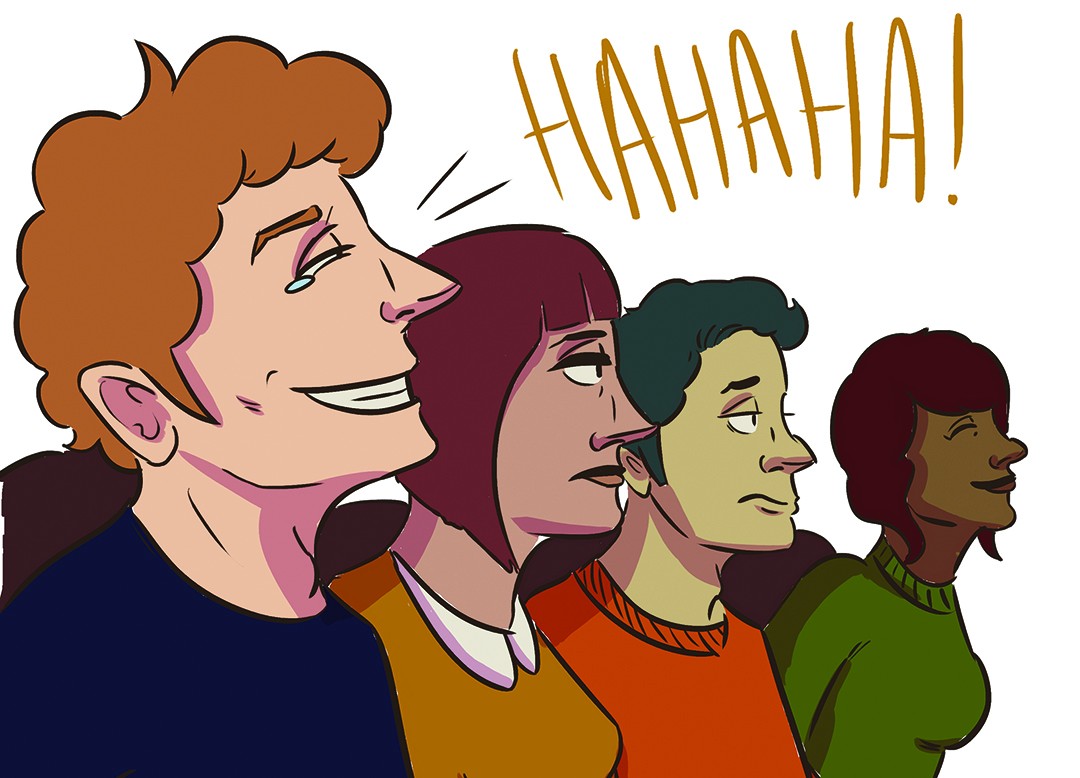“Hey, you’re pretty funny! You should do stand-up.”
I hate to toot my own horn here, but if I had a dime for every time I’ve been on the receiving end of this compliment, I’d be able to afford a comedy club — or, at least, to rent one out on a Wednesday evening. Regardless, the notion of performing stand-up has stuck with me like a banal pop melody or a useless bit of movie trivia (Did you know that the cake in Sixteen Candles is made of cardboard?).
Every so often, I come close. I hit upon an odd social observation or I undergo a bizarre experience, and I cultivate that microscopic seed of a joke until, ideally, it blossoms into a delicate flower of comedic material. A stray thought about, say, the un-sexiness of Snuggies, takes me on a roundabout cognitive journey, leaving me with a rough outline for a whimsical bit. Misshapen and half-baked though it may be, it nevertheless feels like my own unique thought, and for an instant, I feel excited — the excitement you feel when you pop bubble wrap or accidentally speak in rhyming couplets.
And then the bubble wrap is gone.
I can never take that next step: I can never gather the courage to climb up on a stage in a dimly lit room and share my comedic content in front of a hopefully inebriated, potentially judgmental audience.
It’s not that I have stage fright, per se — in fact, if I do say so myself, I’m a lovely dancer, and I’ve been told that I “have the grace and zeal of a young Vanilla Ice.” But, when it comes to finding my comedic voice, I feel a peculiar sense of doubt. “Maybe people won’t see the issue my way,” I think. “Maybe people won’t understand the material.”
“Maybe people won’t think I’m funny.”
With these fears in mind, I turned to David Heti, a stand-up comedian whose hesitant delivery and absurdist material is only overshadowed by the gloriousness of his beard, in the hopes that he would provide insights into the challenges of expressing comedy.
“I suppose,” he says, “there’s something unusually vulnerable about a comic, as not only alone up on stage, but, most often, both the writer and performer, not to mention unscripted. The spaces are also often so intimate, and the audiences, ideally, listen so intently. All this which make it difficult, though, also allow failing on stage more acceptable.”
When asked about the inherent challenges of stand-up comedy, Heti says, “Stand-up comedy is live to a room and a night and an audience in a way which most other kinds of performances are not. Regardless of what has gone on that morning in the news, a play is a play is a play. A comic, however, must respond to the feeling of that particular audience at that particular moment in time. I think good comics not only have ideas as to where they want to take their audiences, but they’re quick and intelligent and flexible enough to deviate from whatever line they may have envisioned if need be.”
Jokes, to Heti, “are nothing more than thoughts,” and their funniness is, he says, “in large part, just what helps you get the message across.”
“There’s a constant trying out of jokes on stage, changing words, delivery, joke order, etc. If something doesn’t go over well initially, I stick with it if I think there’s a good idea there that I simply may not have found the way to communicate. More often than not it’s just that a single part of a joke is cut. Also, if a joke’s not doing well, you simply stop telling it and you end up forgetting about it. And that’s not a concern if you come up with jokes often,” he says.
But for folks like me, where coming up with jokes and getting up in front of a crowd is a concern, Heti offers this advice: “It helps to go up for the first time anonymously. Don’t tell anyone you’re doing it, as it’s easier to look foolish in front of people you don’t know. Like lots of fears, it’s more likely far more terrible in your head than in reality.”
“Also, mine every moment of your waking life for material. Never feel anything or live the moment; simply stand back, once-removed, and attempt to see what’s uncomfortable or absurd or awful, in the now,” he advises, and pauses before adding, “You’ll also need a pen and paper.”
So, will you be seeing me at open mics any time soon? Who’s to say — but if you steal my unsexy Snuggie joke, don’t be surprised if I stand-up for myself.
